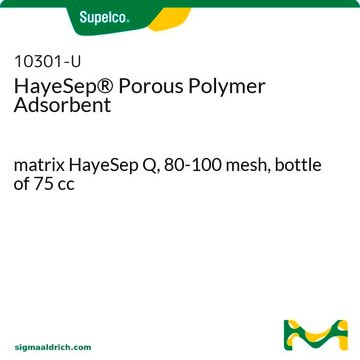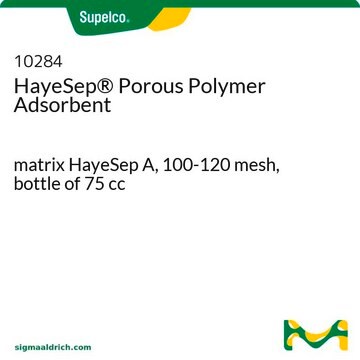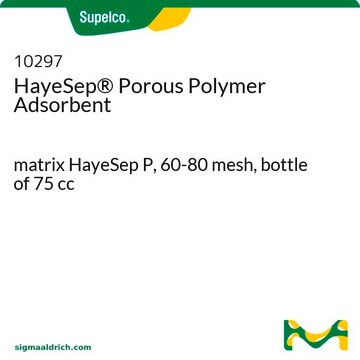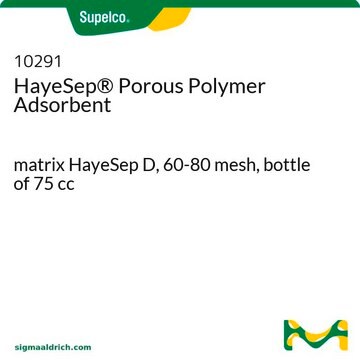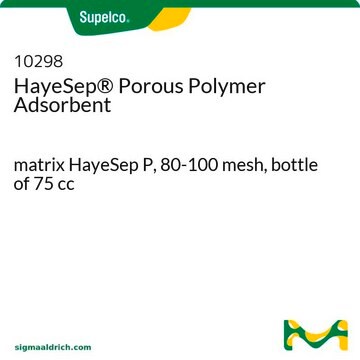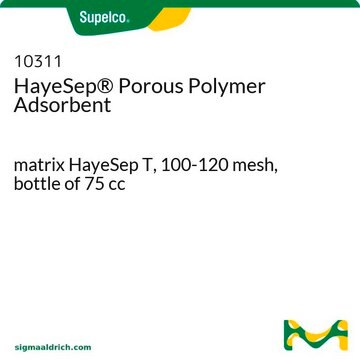10286
HayeSep® Porous Polymer Adsorbent
matrix HayeSep B, 80-100 mesh, bottle of 75 cc
About This Item
Recommended Products
form
solid
Quality Level
packaging
bottle of 75 cc
manufacturer/tradename
Hayes Separation Inc
parameter
190 °C temp. limit
technique(s)
gas chromatography (GC): suitable
surface area
~608 m2/g
matrix
HayeSep B
particle size
80-100 mesh
density
~0.33 g/mL (free fall density)
Looking for similar products? Visit Product Comparison Guide
General description
For more information about any of our adsorbents, please visit sigma-aldrich.com/adsorbents
Application
Legal Information
Signal Word
Warning
Hazard Statements
Precautionary Statements
Hazard Classifications
Aquatic Chronic 2 - Eye Irrit. 2 - Skin Irrit. 2
Storage Class Code
11 - Combustible Solids
WGK
WGK 3
Flash Point(F)
Not applicable
Flash Point(C)
Not applicable
Regulatory Listings
Regulatory Listings are mainly provided for chemical products. Only limited information can be provided here for non-chemical products. No entry means none of the components are listed. It is the user’s obligation to ensure the safe and legal use of the product.
ISHL Indicated Name
Substances Subject to be Indicated Names
ISHL Notified Names
Substances Subject to be Notified Names
JAN Code
10286:
Choose from one of the most recent versions:
Certificates of Analysis (COA)
Sorry, we don't have COAs for this product available online at this time.
If you need assistance, please contact Customer Support.
Already Own This Product?
Find documentation for the products that you have recently purchased in the Document Library.
Our team of scientists has experience in all areas of research including Life Science, Material Science, Chemical Synthesis, Chromatography, Analytical and many others.
Contact Technical Service